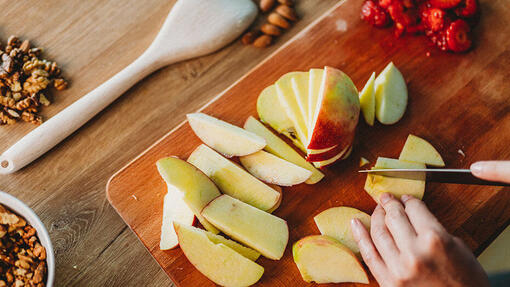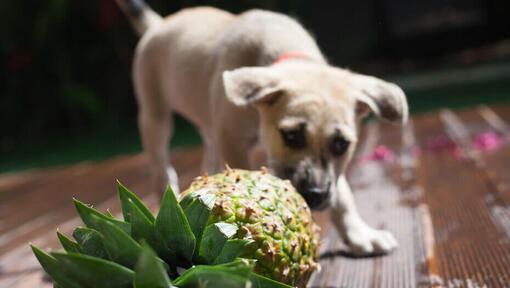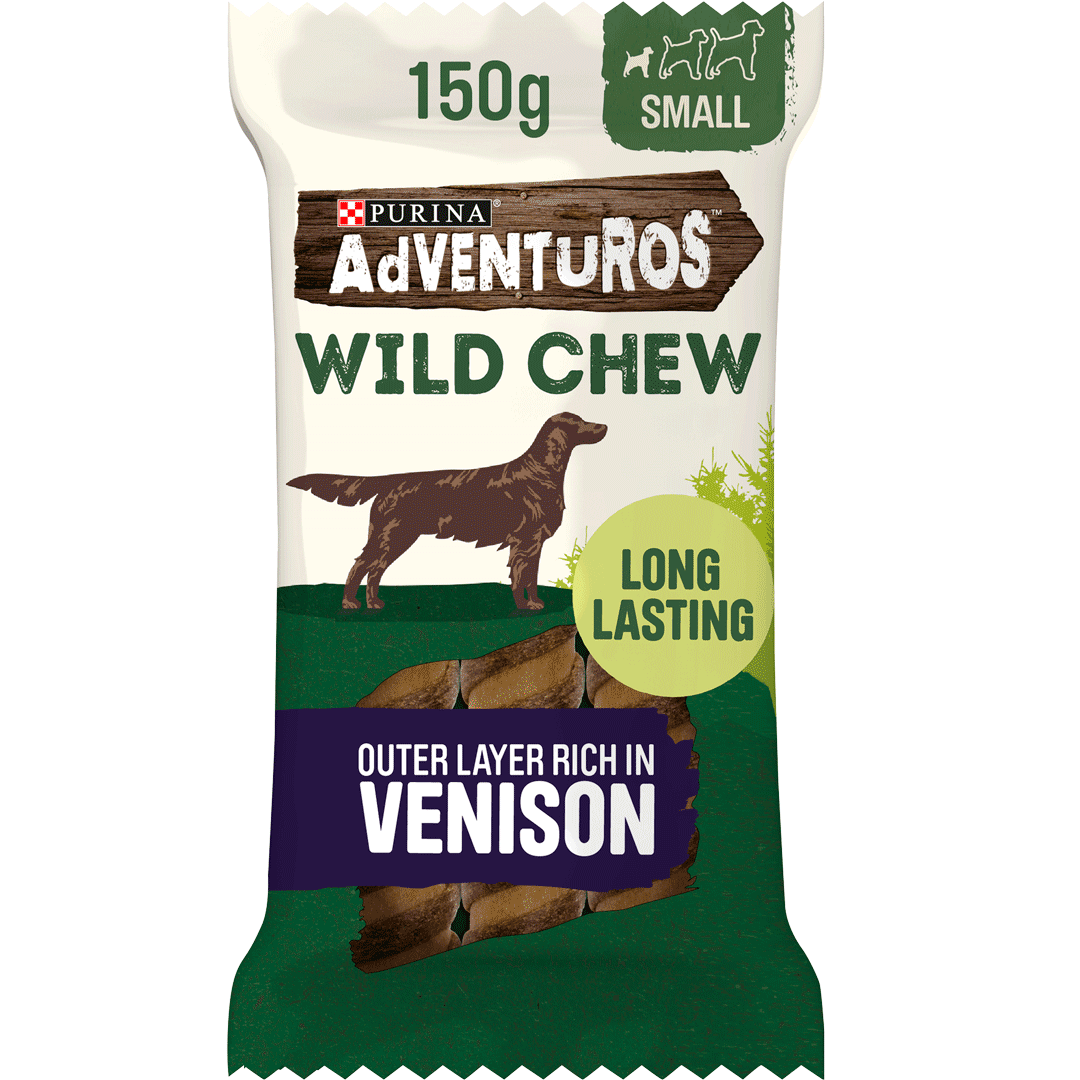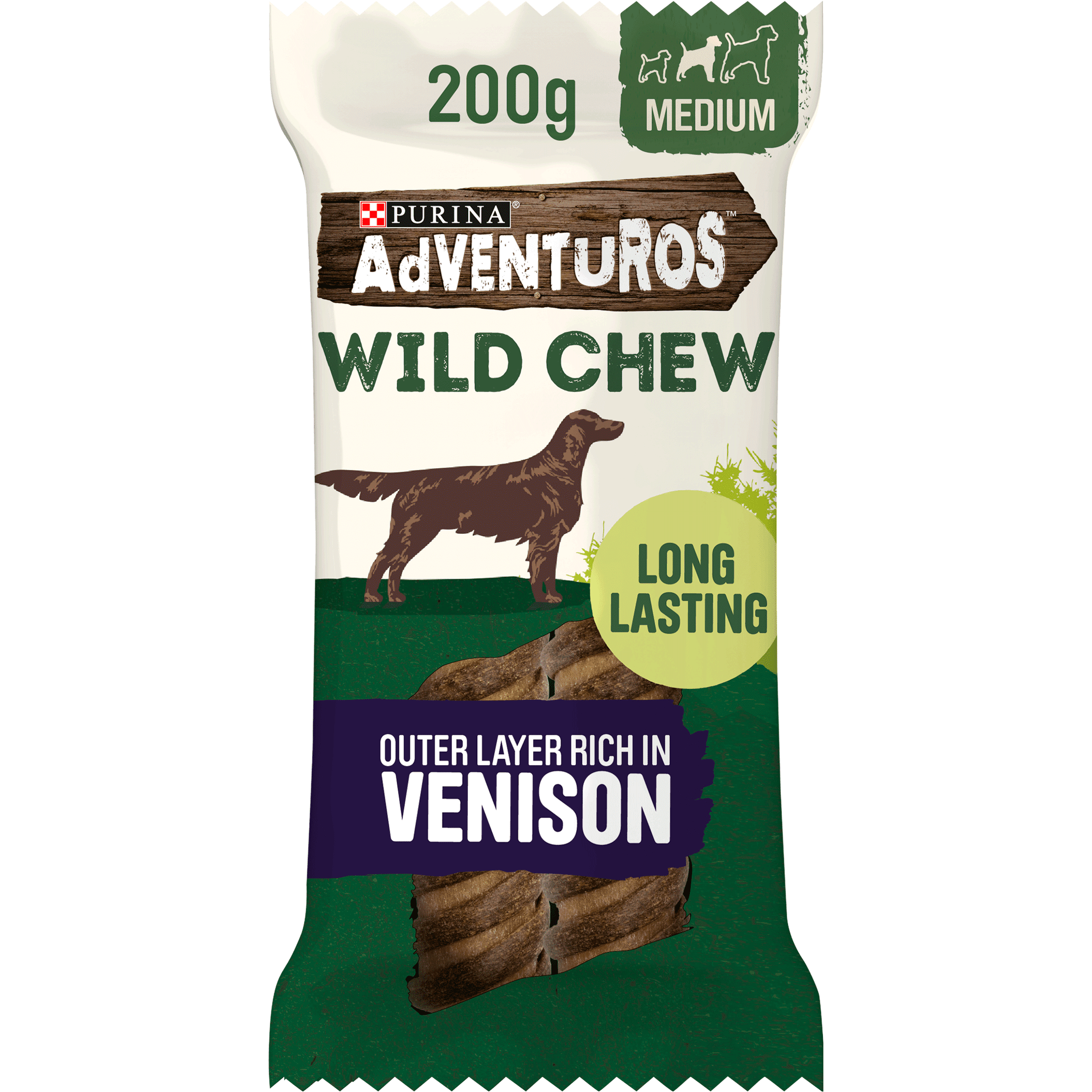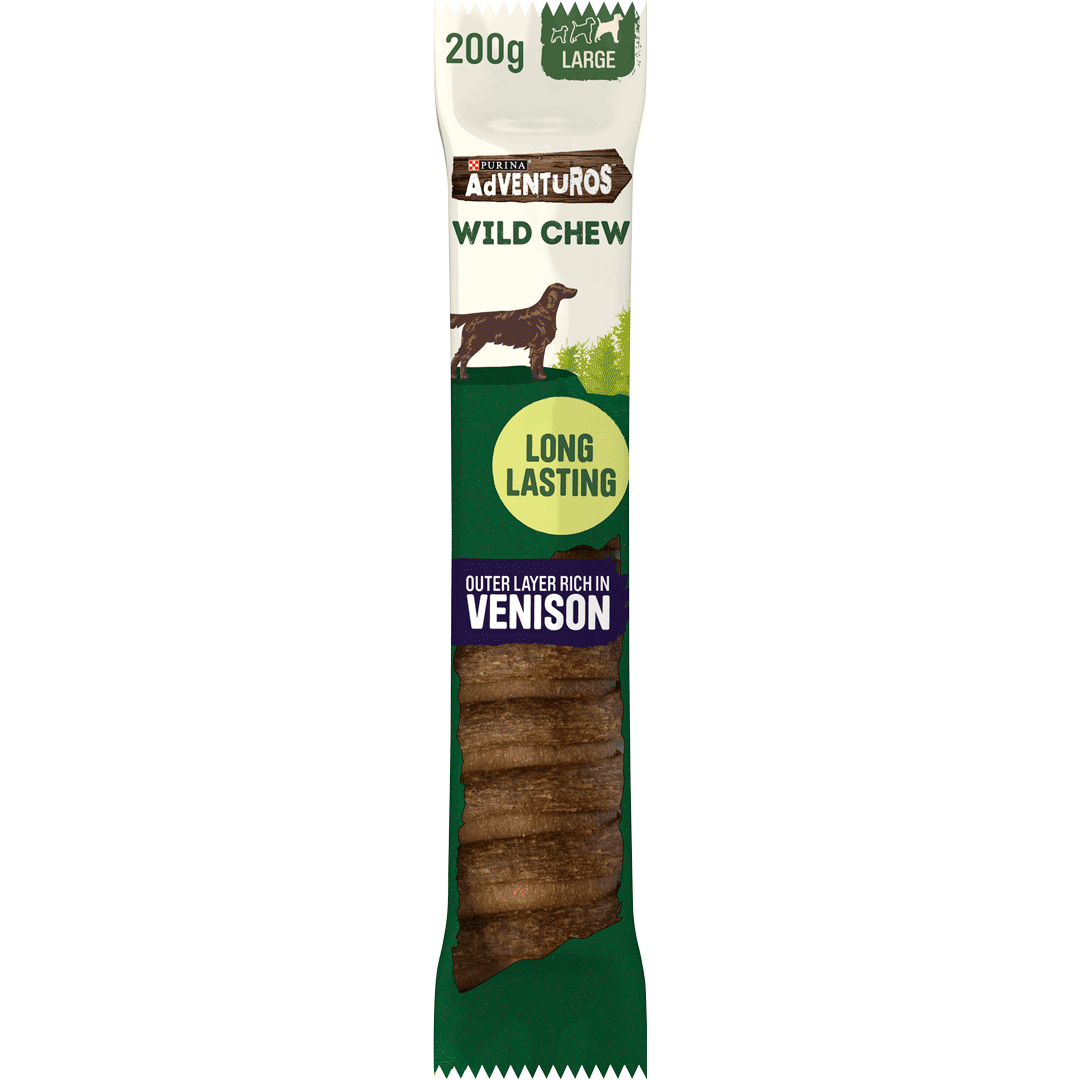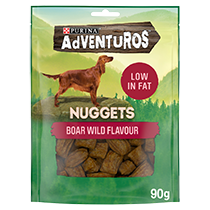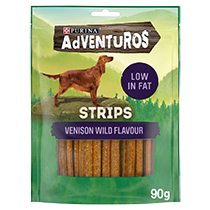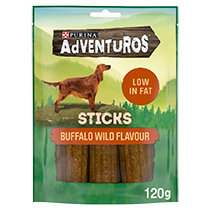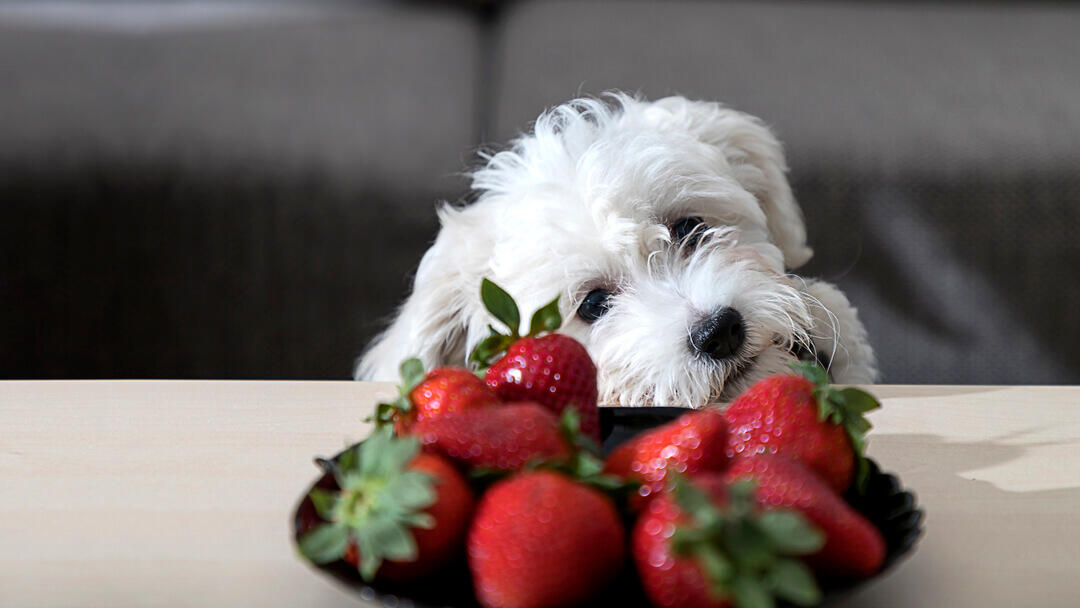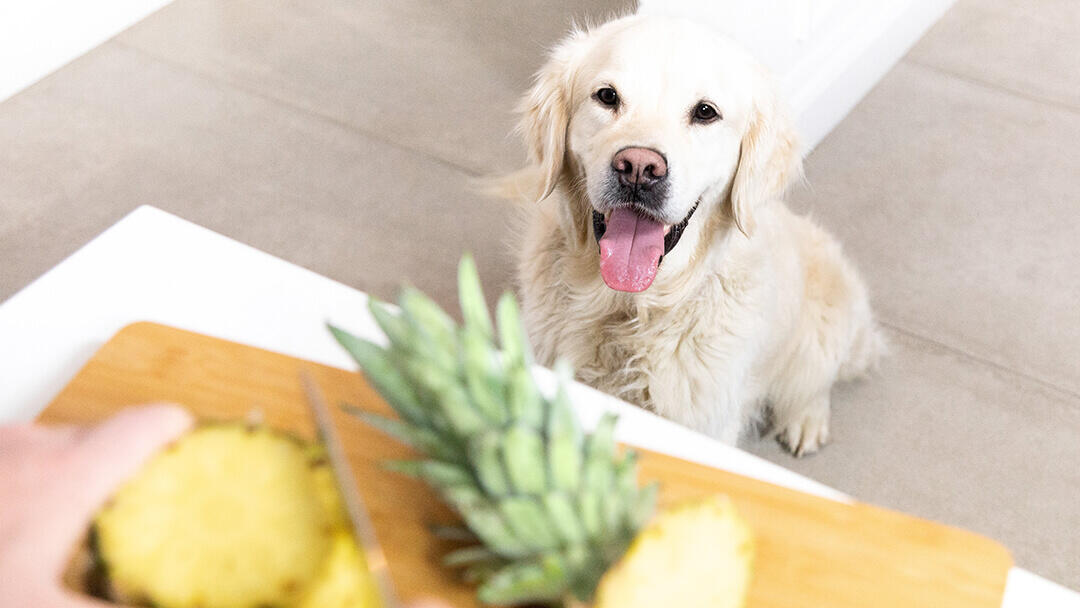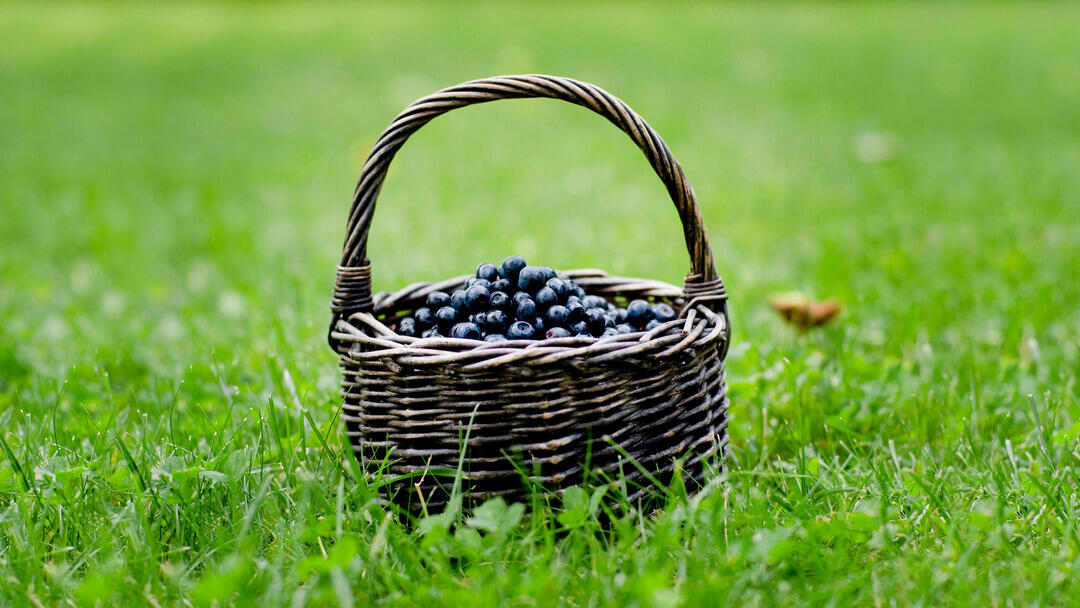
Is your fruit bowl constantly watched by those prying canine eyes? If your dog is keen to try every fruit you bring home, it’s worth checking which ones are actually safe for them to eat, so you can avoid an emergency trip to the vet. So, what fruits are safest for dogs? We’ve listed some options below.
Some are sweet, some are sour, but they’re all delicious, low in calories and packed with many of the vital nutrients our bodies rely on. Fruits are one of the best parts of a healthy diet for us humans, so it’s natural to want to share all of that goodness with our canine companions. But does the ‘five a day’ mantra apply to our dogs too?
Dogs are omnivores, which means their diet should include both meat and plant-based foods. However, if you feed your canine companion a complete and balanced dog food, this should contain all the nutrients they need and they won’t require any extra fruit or veg to keep them healthy.
Fruit can be a great way to treat your dog though, but it’s important to remember that the high sugar content means it’s more appropriate as an occasional treat than a daily indulgence. So, as long as you offer them in moderation, your dog can enjoy some of your favourite fruits too! If you’re wondering what fruits are safe for dogs to eat, here are a few ideas to help you decide what to add to your shopping list.
Apples
Remove the core and the seeds and you’ve got a great fruit snack ready for your dog to enjoy. Apples are high in vitamins A and C, and there’s a good amount of fibre in each serving, making it one of the best types of fruit to offer to your dog.
Do bear in mind that apple seeds contain a tiny amount of cyanide which is toxic to your pet (and to humans, but the quantity is too small for us to worry about). Make sure you remove the seeds and cut the apple into small pieces your dog can easily handle. It’s important not to feed too large chunks, as they could be a choking hazard for your pet.
Bananas
When we’re considering what fruits are good for dogs, many of us think of bananas straight away. Containing a fantastic range of nutrients from potassium to fibre and vitamins, bananas make a great treat for humans and dogs alike. However, they’re also high in sugar which means it’s best to only give your pet a little bit at once, and just very occasionally as a reward for those really good deeds. Keep the banana peel out of their reach though, as it can be difficult for canine stomachs to digest. Chop the fruit up into bite-sized pieces for your pup to enjoy.
Blueberries
This fruit is not only tasty and full of antioxidants and vitamins, but also comes in handy bite-sized pieces! This means there’s no need to chop blueberries up for your dog, but do be mindful that they can potentially be a choking hazard for excited pets. Mashing them up can help avoid this risk, and it’s recommended to do this particularly for smaller breeds.
Although blueberries aren’t a necessary addition to your dog’s diet, you can satisfy your dog’s curiosity and offer them as a treat every once in a while. As long as they’re fed in moderation, blueberries won’t pose a risk to your dog’s health. Find out more from our handy article can dogs eat blueberries.
Mango
Another sweet treat, perfect for summer days, mango can be enjoyed by our canine friends too. But don’t forget to remove the hard pit before offering it to your pet. It’s also best to peel off the skin, as this can be a bit hard to digest. To feed mango to your dog, cut the fruit into bite-sized pieces and offer it in moderation to your canine friend as a delicious treat.
Oranges
This well-known citrus fruit might not be to every furry friend’s taste, but if it looks like your dog is a fan, you can safely feed them a bit of orange – minus the peel and the seeds. Oranges aren’t just a tasty treat, they’re also full of vitamin C, fibre and potassium too! However, it’s important to keep an eye on the quantity you’re offering, as this fruit is high in sugar, which can encourage weight gain. This fruit can also upset the stomach of some dogs, so it’s important to only feed a little bit to start with. Find out more in our article can dogs eat oranges.
Peaches
As long as they’re fresh and not straight out of a can, peaches are another great fruit you can safely feed to your dog. As with any stoned fruit, make sure you remove the hard pit before it goes in your dog’s food bowl. Two or three small pieces offered for especially good behaviour is the perfect way for your furry companion to enjoy this summer fruit.
Pears
Bursting with vitamins C and K plus lots of fibre, pears are one of the best ‘five a day’ choices for us humans. When it comes to what fruits are good for dogs, pears are on the safe and nutritious list for our pets too. To feed your dog pears, remove the seeds, cut the fruit into bite-sized chunks and let your dog dig in.
Pineapple
There’s plenty to love about this tropical fruit, from the refreshing taste to the vitamins, minerals and fibre it has to offer. But is it also on the list of fruits and veggies for dogs? Well, pineapple is not toxic for dogs, but the high sugar content means it’s generally better avoided.
If you decide to give a couple of bites to your canine friend on rare occasions, it’s important to avoid the indigestible core or the skin of the fruit, as these could potentially cause intestinal obstructions. Just give a little of the fleshy part of the fruit and cut it into small bite-sized pieces – find out more about feeding pineapple to your dog by reading our quick guide.
Strawberries
These red little berries are a favourite in many households and if dogs are present, they might develop a fondness for this summer fruit too. The good news is that strawberries have no toxic substances that dog owners should worry about. But their sugar content can create health problems if this fruit ends up on your dog’s menu too often. Particularly if your dog is small, it’s worth cutting these fruits up into little pieces to minimise the risk of choking. Find out more about how to feed strawberries to your dog in our guide.
Watermelon
Watermelon, minus the rind and the seeds, is another fruit you can safely offer to you dog. Plus, it’s over 90% water, making it a tasty source of extra hydration in those hot summer months. Did we mention it’s also packed with potassium and vitamins? Offer watermelon to your dog in two or three bite-sized chunks and watch them enjoy this refreshing treat.
Grapefruit
Grapefruit can be fed to your dog in very small amounts. Due to its acidic nature, it can upset your dog’s gut lining. However, it’s always important to always remove the skin as this is toxic to dogs and has the potential to block their intestines. If you’re concerned, make sure to contact your vet. And, see our guide on how to feed grapefruit to your dog safely.
Melon
Melon (or cantaloupe) is safe for dogs, as long as it’s given rarely as a treat. Melon has a lot of sugars which isn’t good for your dog to eat often, especially if your dog has diabetes. It should then be avoided. Otherwise, melon can be a tasty treat for your dog. Also, remember to cut it into small chunks and remove any seeds.
Coconut
Coconuts are a fatty fruit, meaning your dog can have it in moderation. Because of its high fat content, your dog could put on unnecessary weight which could then lead to other health issues. Coconuts aren’t toxic so you won’t need to worry if your dog accidentally eats a small amount. See our guide on coconuts for dogs for more information.
Nuts
Nuts for dog diets are high in fat so shouldn’t be given to your dog regularly. Your dog could have plain nuts (no sugars, salts etc) once in a while as a treat but it shouldn’t be a part of their regular diet. Like with coconut, excessive amounts of fats can cause weight-related health issues. It’s also important to remove shells to avoid choking.
Mandarins
Like other citrus fruits, mandarins are fine occasionally for your dog but shouldn’t be given to your dog all the time. The acidity in mandarins could upset your dog’s stomach lining. Also, remember to avoid giving the mandarin skin to your dog as it can be a choking hazard.
Raspberries
Dogs can eat raspberries in moderation and for an occasional treat but there isn’t a need for them in your dog’s diet. Puppies can also eat raspberries, but again in moderation because their stomachs are delicate. If your dog has diabetes, it’s best to avoid raspberries altogether.
Pumpkin
Cooked pumpkin is fine for your dog. This could be unsweetened pumpkin puree, canned pumpkin or baked pumpkin. As long as there are no additives, your dog can have pumpkin as an occasional treat. It’s a good idea to avoid raw pumpkins as it can be hard for your pooch to digest.
Always remember that if you’re in any doubt over what fruits your dog can eat, it’s best to check with your vet, especially if your dog is overweight, suffering from diabetes or a particular digestive problem.
Want to find out more about other human foods and whether your dog will be safe trying them out? Our simple daily feeding guides will dispel common myths and mysteries and help you find the answers you’re looking for.




